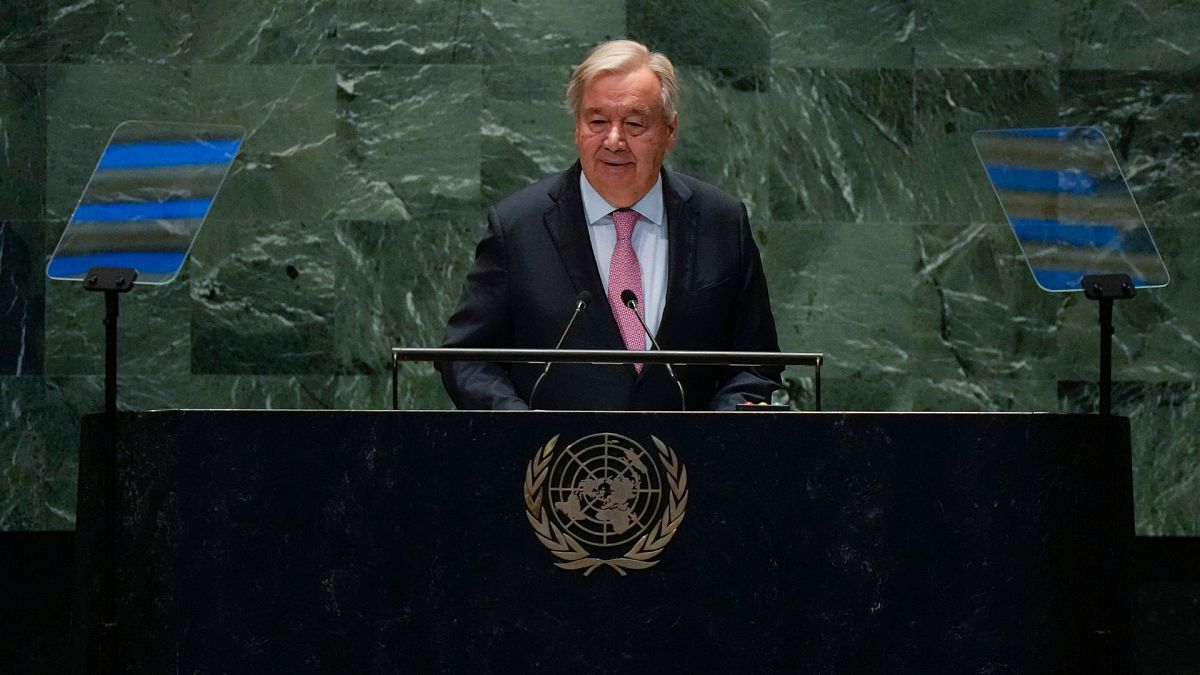‘Earth is going in the wrong direction… that’s why we need to act,” one speaker said ahead of the UN General Assembly.
World leaders have descended on New York this month for the annual UN General Assembly.
Yesterday, attendees gathered at the ‘Summit of the Future’ ahead of today’s general debate, where speakers warned of the emerging threats of conflict and climate change.
A group of scientists produced the first of what they hope is an annual planetary health check. The prognosis is grim.
Earth is in the danger zone on six of the nine special systems that scientists looked into, with a seventh flirting with that risky area and maybe already breaching the boundary, according to the report by the Potsdam Institute for Climate Research and independent collective Planetary Guardians.
‘Earth is going in the wrong direction’
The six areas definitely out of whack are the freshwater system, the climate, the phosphorus cycle, biodiversity, general land health and ‘novel’ chemicals (such as microplastics).
Ocean acidification is about to cross the danger line or may have done so already, the report said.
Only the ozone layer and health of the air are in decent shape, said Potsdam Institute Director Johan Rockstrom, who has done a similar planetary health check every several years and there is not much change from last year’s.
“For 30, 40 years, the world has been conscious that Earth is going in the wrong direction but we did not feel the earth was on fire. Right now the planet is on fire and that’s why we need to act,” former Colombia President Juan Manuel Santos said in a press briefing.
Should big polluters pay for climate damage?
Nations vary on who should pay to help poor nations deal with the impacts of global warming and switch to cleaner energy.
Caribbean leaders want big polluters – especially fossil fuel companies – to pay more of the trillions of dollars that are needed to address these issues.
In a brief video appearance, Barbados Prime Minister Mia Mottley, a leader in the call for global financial reform and seen as a possible future UN secretary-general, said poorer and middle income nations realise that private money is going to have to be part of a financial deal. But she said many multinational companies, which are richer than dozens of small nations, should offer up more money.
Bahamas Prime Minister Philip Davis said fossil fuel companies need to be held accountable, but it will probably have to be in the courts through international lawsuits.
John Podesta, Biden’s top climate official, says the United States is doing its part to fight climate change and it’s paying off around the world. Podesta said the $300 billion (€269b) Inflation Reduction Act spurred private businesses to spend $270 billion (€242b) in clean energy.
But the payoff wasn’t just in the United States because for every tonne of heat-trapping carbon that the country reduced because of the new law, the world cut 2.9 tonnes, he said.
The Pact for the Future, a blueprint for addressing some of the world’s biggest challenges, was agreed on Sunday. Climate change was one of the headline topics of the 42-page plan, which aims to guide the UN’s 193 member states to work together in addressing the most significant global challenges.
Bolstering energy security in Ukraine
In a statement released yesterday, the US and G7 Group pledged their support for Ukraine’s energy sector against the backdrop of Russian attacks on infrastructure.
The regional implications of these stretch beyond Ukraine’s borders, impacting energy security in neighbouring countries like Moldova, too.
In aiding long-term recovery, they plan to boost the safety and security of Ukraine’s nuclear facilities and develop “a more decentralised, diversified, resilient, and renewable/sustainable energy system that is fully integrated with Europe”, a joint statement reads.
“We are convinced that rebuilding Ukraine’s energy system in the short and long term is in the interest of enhancing global energy security and sustainability,” they add.

